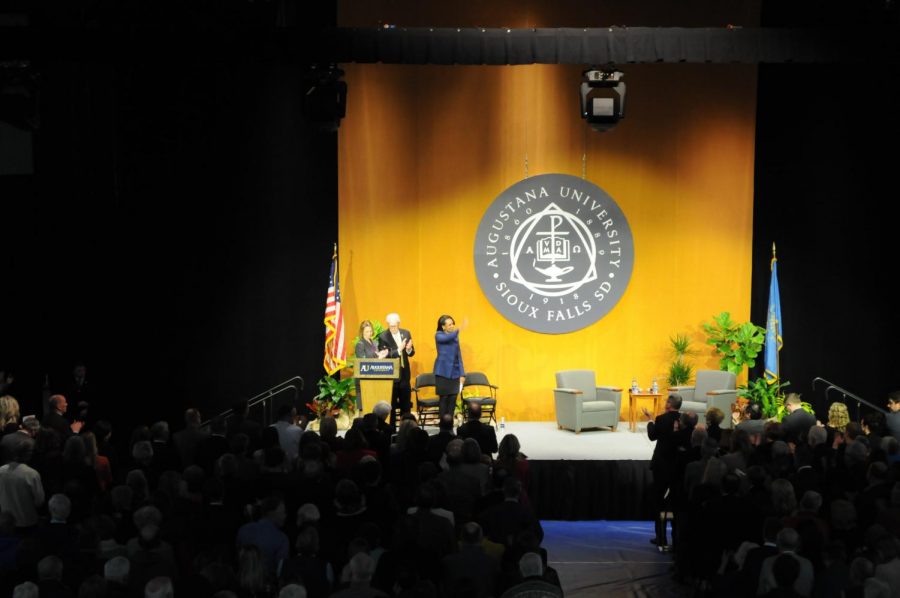Boe Forum Perspectives: John’s Thoughts
POSTED April 13, 2018
 I’ve spent some time living overseas as the child of an army colonel. If you’ve ever traveled or lived abroad you’ve probably encountered the stigma many have against America, the too common question of “Why does America have to interfere with everyone else’s business?” I remember answering this question many times when I attended my international school in Stavanger, Norway. Looking back on it, it was kind of unfair of the multiple Iraqis and Russians to berate my freshman self with their nationalistic questions about globalization and foreign policy. I remember when I moved to Norway in seventh grade I tried to defend myself from a fellow Iraqi student passionately accusing the United States of war crimes saying Iraq would have been better left alone under the regime of Saddam Hussein and Al Qaeda. At the time I couldn’t care less about foreign politics; I, like most at my age, was focused on growing up. I’d much rather worry about who I would take to the middle school dance than worry about if the U.S. should engage Russia in their annexation of Crimea. However, I was stationed at the international school because my father worked for NATO, an organisation which keeps the U.S. “interfering with foreign affairs”, I grew up a bit too soon with my perception of globalization. When I saw Condoleezza Rice talk at the Sioux Falls Boe Forum advocating for globalization it got me thinking. I grew up dealing with the problems of a globalist America; I grew up in the military where many of my friends and neighbors were killed in wars that had little to do with the U.S. I remember the fear I of losing my own father during the time he spent deployed. I’ve also seen the benefits globalization has had on the world, and I agree with Rice. We need globalization.
I’ve spent some time living overseas as the child of an army colonel. If you’ve ever traveled or lived abroad you’ve probably encountered the stigma many have against America, the too common question of “Why does America have to interfere with everyone else’s business?” I remember answering this question many times when I attended my international school in Stavanger, Norway. Looking back on it, it was kind of unfair of the multiple Iraqis and Russians to berate my freshman self with their nationalistic questions about globalization and foreign policy. I remember when I moved to Norway in seventh grade I tried to defend myself from a fellow Iraqi student passionately accusing the United States of war crimes saying Iraq would have been better left alone under the regime of Saddam Hussein and Al Qaeda. At the time I couldn’t care less about foreign politics; I, like most at my age, was focused on growing up. I’d much rather worry about who I would take to the middle school dance than worry about if the U.S. should engage Russia in their annexation of Crimea. However, I was stationed at the international school because my father worked for NATO, an organisation which keeps the U.S. “interfering with foreign affairs”, I grew up a bit too soon with my perception of globalization. When I saw Condoleezza Rice talk at the Sioux Falls Boe Forum advocating for globalization it got me thinking. I grew up dealing with the problems of a globalist America; I grew up in the military where many of my friends and neighbors were killed in wars that had little to do with the U.S. I remember the fear I of losing my own father during the time he spent deployed. I’ve also seen the benefits globalization has had on the world, and I agree with Rice. We need globalization.
Globalization is the increase in interaction between people on a worldwide scale in terms of business, communication, technology and politics. Ever since World War II, the United States has moved towards globalization rather than isolation, the belief that a nation should not interfere with the issues of others. Since World War II, the U.S. has created the largest military force along with a globalized industry, which allows people all around the world to buy American products and vice-versa encouraging international trade. This was originally done to keep peace because if countries were trading with each other they were less likely to go to war with their supplier.
The European Union is a perfect example of this as it made Europe-a continent that constantly engaged in war for over a millenia-an economic union with open borders and trade, even having a shared currency.
Because of globalization organizations like the U.N., with the help of America and other like minded countries, we have pushed for democracy as the dominant form of governing in the world. This, according to Condoleezza Rice, was done to prove a theory which has now been long established as fact: “Democracies don’t fight with one another” (Rice March 20th, 2018). The Democratic Peace theory, as it is popularly called, claims that the majority of citizens would vote not to go to war unless threatened because the costs are too great: meaning democracies are never the aggressors. Therefore, if the whole world was democratic it would mean the end of war as no country would attack another and no country would ever have to defend itself.
If democracies choose not to go to war then why does America, a republic, get involved in wars around the globe? Globalization. For this theory to work it requires all countries to be democratic. Every conflict the U.S. has gotten it self into since globalization has been in the name of preserving or establishing democracy. When the U.S. went to war in Korea in the 1950’s they were trying to save a democracy from totalitarian regime, and the same thing happened in Vietnam.
So back to that international school I spent my 7th, 8th, and 9th grade years in, when I was asked that too common question: “Why does America have to interfere with everyone else’s business?” I would tell them about globalization and how it made the second half of the 20th Century one of relative peace when the first half had the two deadliest wars in human history. I would tell them about the work organizations such as the U.N., the E.U., NATO and various others that have maintained peace around the world. And I would tell them that the military conflicts of the United States weren’t empirical conquests, rather I like to think of them as the Wars to end Wars.





